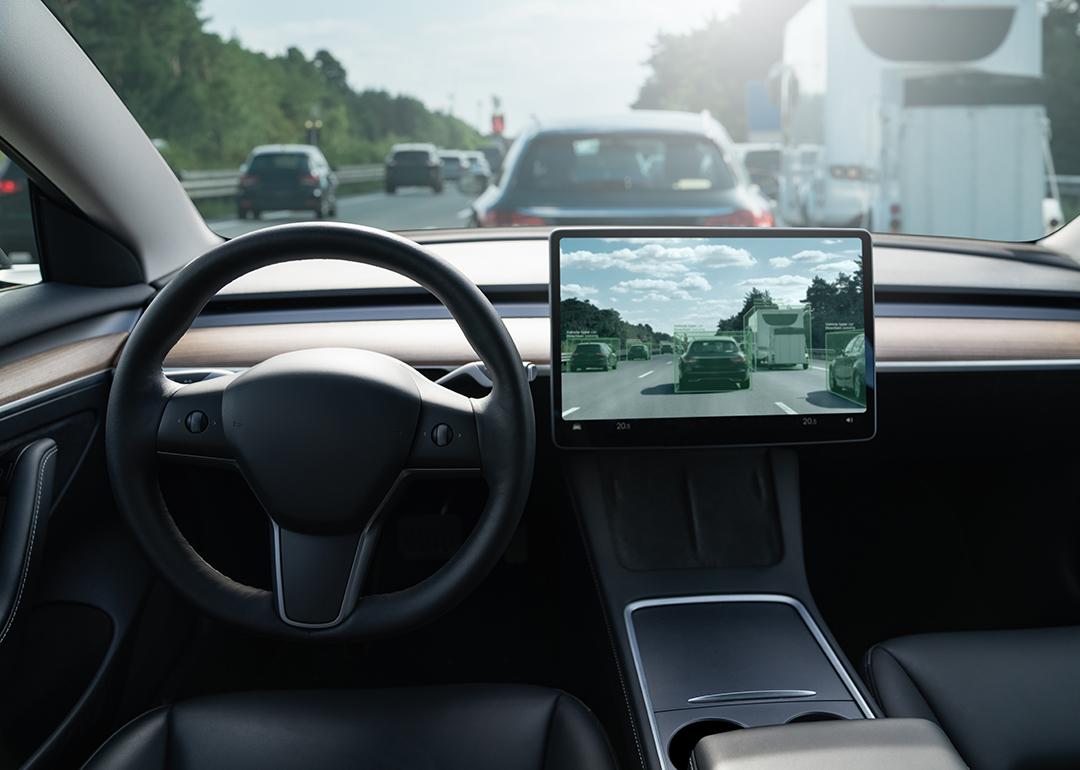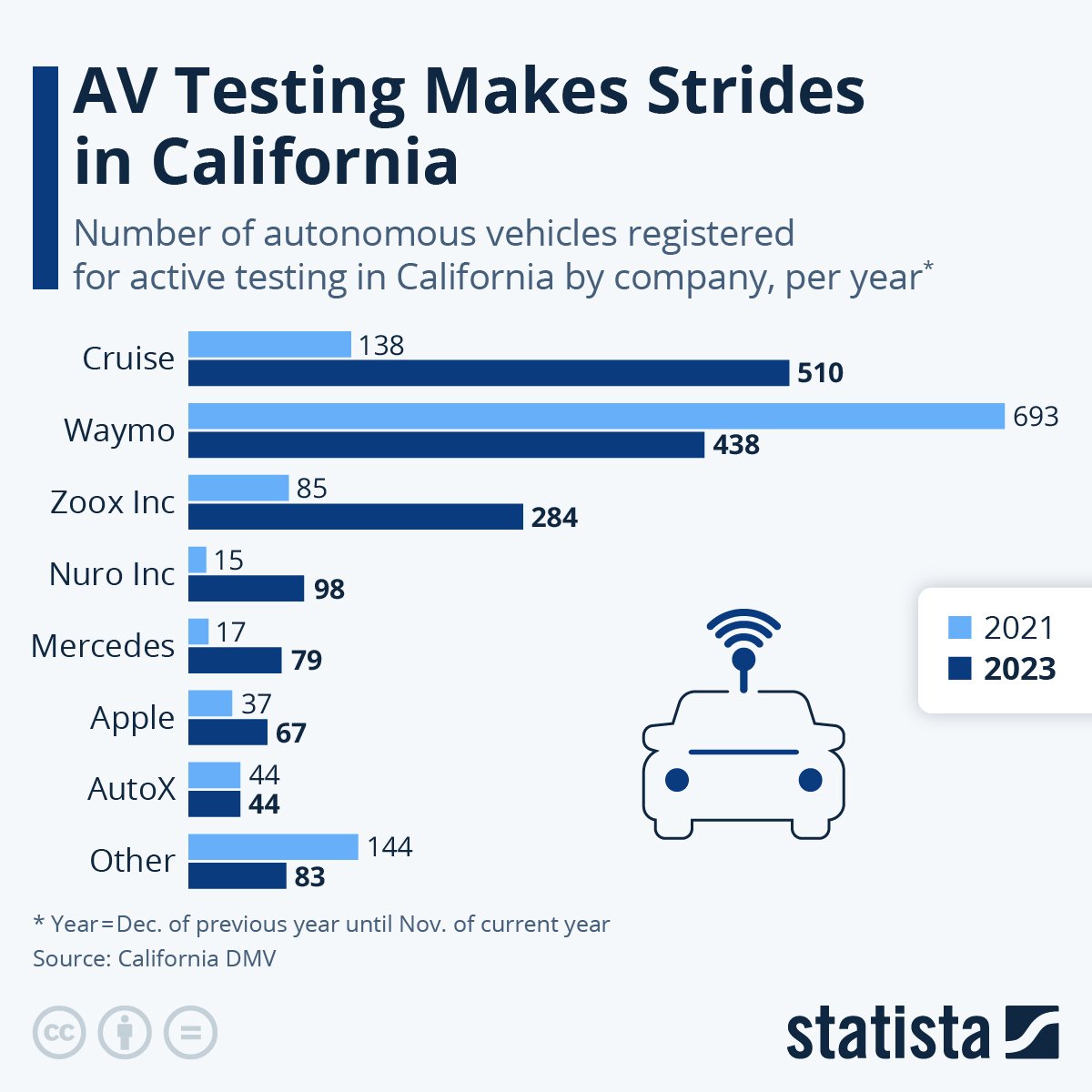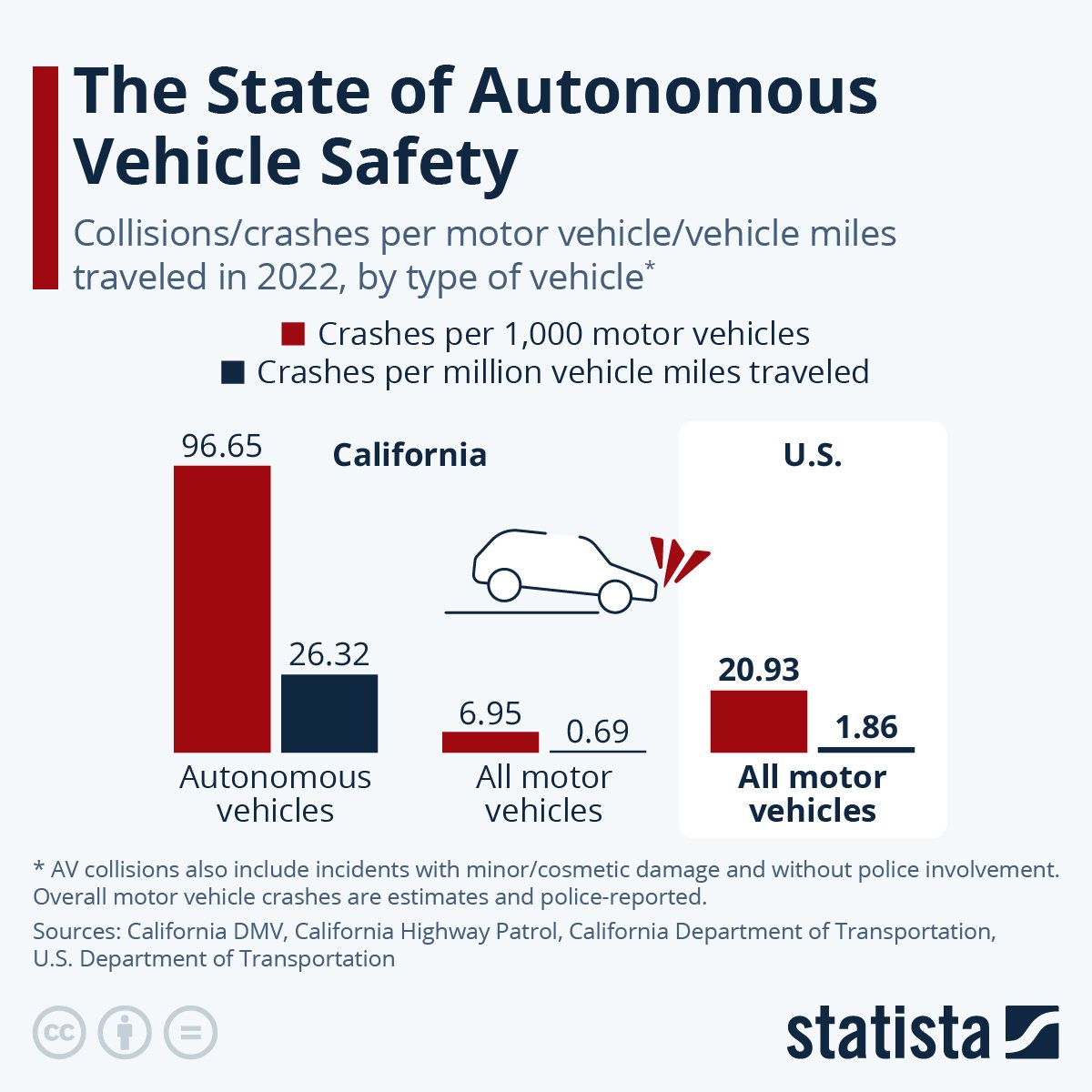
This story was produced by Way.com and reviewed and distributed by Stacker Media.
Autonomous vehicles: How safe are they?
How safe are autonomous vehicles compared to cars driven by people? Way.com delves into the data on AV testing growth and analyzes the current state of AV safety in California.

AV Testing in California
In the past few years, there has been a threefold increase in the number of self-driving cars registered to be tested in California. Big companies like Cruise, Waymo, and Zoox Inc. have jumped in and increased their active testing fleets significantly.
California's AV testing grounds keep getting bigger. There's no doubt that this shows the industry is committed to improving self-driving cars—and also making them easy for regular people to use.
State of Autonomous Vehicle Safety
All this testing of AV's is great and all, but safety is the only thing that really matters. The infographic below shows the crash rates for driverless vehicles. This is as opposed to all motor vehicles, in California and the United States.

Testing Expansion and Safety Data Comparison
In 2022, autonomous vehicles in California experienced 96.65 crashes per 1,000 vehicles, far exceeding the 6.95 crashes per 1,000 vehicles for all motor vehicles.
Yet, this number isn't as scary as it sounds. This high AV crash rate is probably because any incident involving an AV, whether it be a minor fender bender or even a near-miss situation, is reported. However, with a conventional vehicle, these types of incidents may not always be reported.
In California, autonomous vehicles experienced 26.32 crashes per million miles traveled, a much higher rate than the 0.69 crashes per million miles for all motor vehicles.
Insights on AV Testing and Safety
California has seen leaps and bounds in the safety testing of AVs. Top companies like Cruise, Waymo, and Zoox Inc. have more than doubled the number of registered vehicles in their fleets in the past two years. Safety testing will also be a very important part of AVs in California if they continue to come out because it will help to improve their safety and performance.
The current crash rate per 1,000 vehicles for AVs is higher than that of conventional vehicles, but that is to be expected considering the testing phase and the stricter reporting requirements. It's great to see that the crash rates per million miles traveled are lower because it shows that AV technology could be the key to fewer traffic accidents and safer roads someday.



